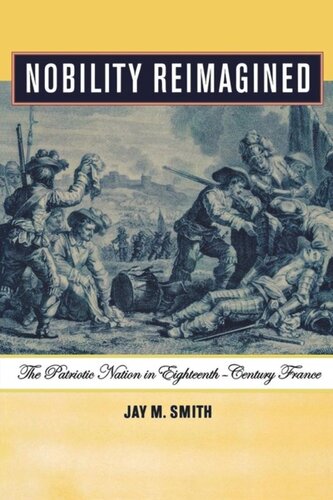

Most ebook files are in PDF format, so you can easily read them using various software such as Foxit Reader or directly on the Google Chrome browser.
Some ebook files are released by publishers in other formats such as .awz, .mobi, .epub, .fb2, etc. You may need to install specific software to read these formats on mobile/PC, such as Calibre.
Please read the tutorial at this link: https://ebookbell.com/faq
We offer FREE conversion to the popular formats you request; however, this may take some time. Therefore, right after payment, please email us, and we will try to provide the service as quickly as possible.
For some exceptional file formats or broken links (if any), please refrain from opening any disputes. Instead, email us first, and we will try to assist within a maximum of 6 hours.
EbookBell Team

4.3
68 reviewsThe mature nationalism that fueled the French Revolution grew from patriotic sensibilities fostered over the course of a century or more. Jay M. Smith proposes that the French thought their way to nationhood through a process of psychic adjustment premised on the reimagining of nobility, a social category and moral concept that had long dominated the cultural horizons of the old regime. Nobility Reimagined follows the elaboration of French patriotism across the eighteenth century and highlights the accentuation of key, and conflicting, features of patriotic thought at defining moments in the history of the monarchy. By enabling the articulation of different futures for nobility and nation, the patriotic awakening that marked the old regime helped to create both the quest for patriotic unity and the fierce constitutional battles that flowered at the time of the Revolution. Smith argues that the attempt to redefine and restore French nobility brought forth competing visions of patriotism with correlating models of the social and political order. Although the terms of public debate have changed, the same basic challenge continues to animate contemporary politics: how to reconcile inspiring and unifying nationalist ideals—honor, virtue, patriotism—with persistent social frictions rooted in class, ideology, ethnicity, or gender.